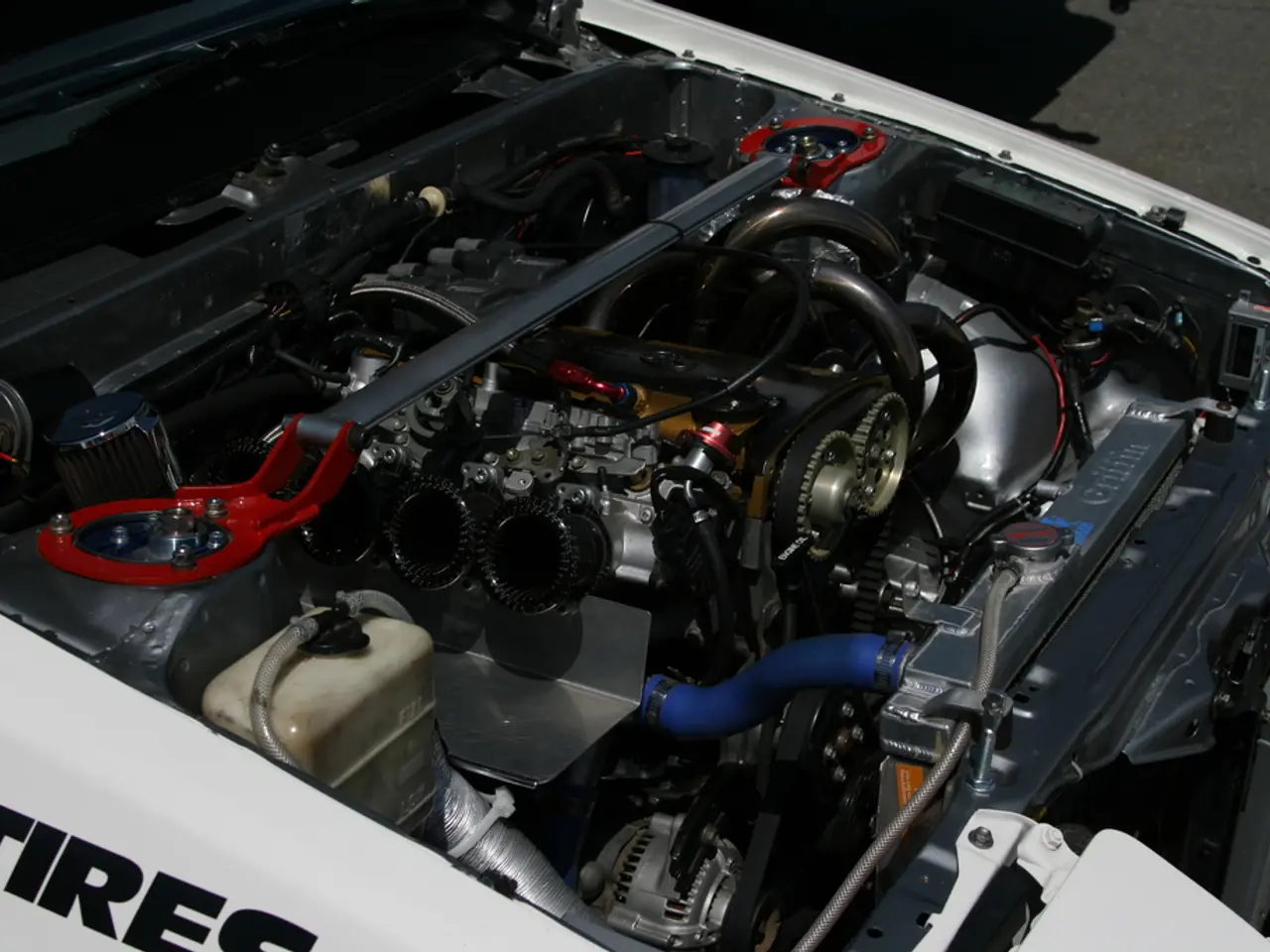Investor enthusiasm for solid-state batteries surges in China due to increasing confidence
China's battery industry is making significant strides in the development of solid-state batteries, with several key announcements and investments in recent times.
GAC Group, a prominent automotive manufacturer, announced plans to achieve mass production of fully solid-state batteries in 2026, initially for its Hyper vehicle models. Meanwhile, Gotion High-tech, another Chinese battery company, has unveiled its Jinshi battery, which utilizes solid-state technology, and is planning small-scale vehicle trials of fully solid-state batteries in 2027.
Investment in the domestic primary market has been robust, with 22 financing events in the solid-state battery sector in both 2022 and 2023. Notable investors include Hillhouse Capital, HongShan, Oriental Fortune Capital, Innoangel Fund, and Six Sigma Capital. The Chinese Ministry of Industry and Information Technology is also planning industrial policies for solid-state batteries, prepared to provide tens of billions of RMB to support multiple companies' investments.
However, despite the accelerating development pace, there is still a long way to go before large-scale commercial use of solid-state batteries becomes a reality. Companies have concentrated announcements for small-scale solid-state battery production in 2026 and 2027 due to the technological maturity timeline, allowing time for necessary research, development, and pilot production before large-scale commercialization.
CATL, a leading battery manufacturer, aims to achieve small-scale production of fully solid-state batteries by 2027. Solid-state battery projects should still be regarded as typical venture investments that pose considerable risk.
Professor Ouyang Minggao, an academician, has highlighted that the industrialization of fully solid-state batteries still faces a series of scientific challenges that need to be addressed at different levels. These challenges include meeting key performance criteria such as safety, energy density, cycle life, charging rate, temperature resistance, and battery management system (BMS) control.
South Korea and Japan have been ahead in solid-state battery development, with South Korea planning to invest KRW 3.066 trillion from 2023-2028 to achieve early commercialization of solid-state and lithium metal batteries. IM Motors, a subsidiary of SAIC Motor, announced a "quasi-900V ultra-fast charging solid-state battery" in April.
The announcement of GAC Group's plans for mass production of solid-state batteries sparked speculation in the secondary market, but received public criticism and skepticism. The R&D head believes that achieving mass production of fully solid-state batteries in China by 2030 is a conservative estimate.
In conclusion, while China's solid-state battery sector is witnessing a surge in investments and announcements, it is essential to remember that the road to large-scale commercialization is long and fraught with scientific challenges. Nonetheless, the potential benefits of solid-state batteries in terms of safety, energy density, and charging speed make them an exciting area of research and development.
Read also:
- chaos unveiled on Clowning Street: week 63's antics from 'Two-Tier Keir' and his chaotic Labour Circus
- Skechers Debuts First American Stores Focused on Athletic Footwear Performance
- Racing ahead in Renewable Energy Dominance: Changzhou, Jiangsu Pushes for Worldwide Renewable Energy Ascendancy
- Unchecked carbon emissions could potentially lead the world to revert to coal usage, according to a knowledgeable source.




